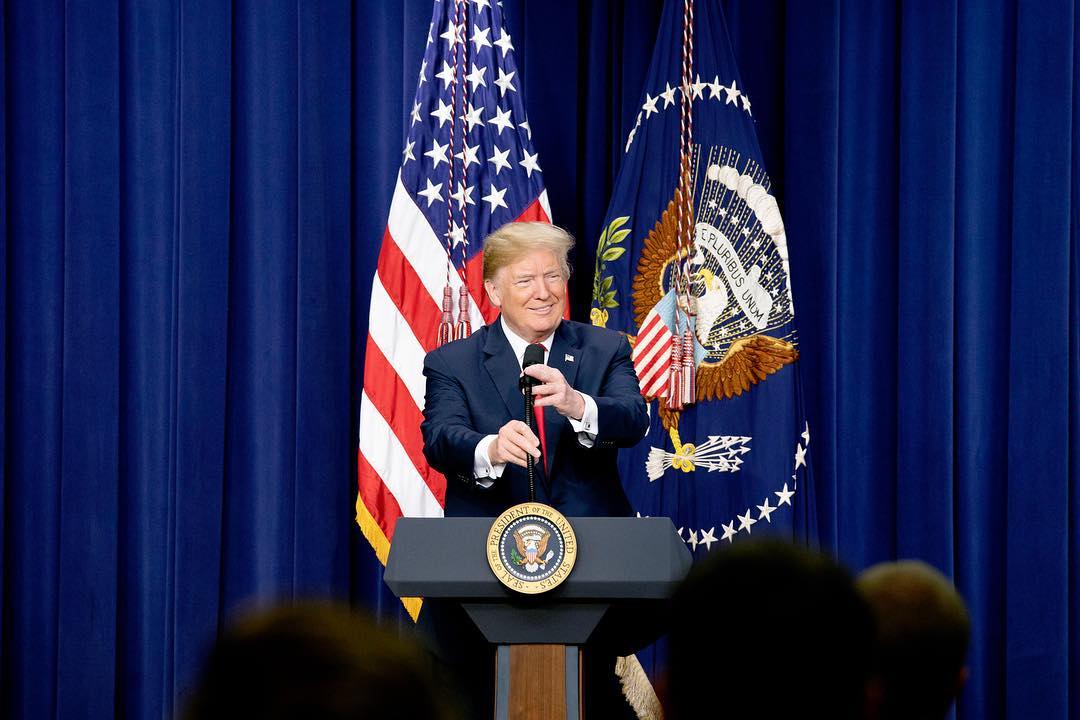A Justice Department watchdog report has revealed that prosecutors under President Donald Trump’s first administration bypassed internal guidelines during media leak investigations. Released Tuesday by Inspector General Michael Horowitz, the findings spotlight the Justice Department’s sweeping data seizures targeting journalists, congressional staffers, and even Democratic lawmakers.
The investigations included acquiring phone records and text logs of key figures, including Representatives Adam Schiff and Eric Swalwell, and 43 congressional aides. One notable individual impacted was Kash Patel, then a House Intelligence Committee staffer and Trump’s pick for FBI director.
Prosecutors reportedly utilized subpoenas and legal maneuvers to gather records from service providers such as Apple. However, they failed to notify affected individuals or convene the DOJ’s mandatory internal News Media Review Committee—an oversight mechanism designed to evaluate the justification for such actions.
The report noted no direct evidence of retaliatory motives but criticized the actions for undermining public trust and creating the appearance of executive interference in legislative oversight.
Balancing Press Freedom and National Security
The revelations have reignited concerns over press freedom and national security, especially as President-elect Trump prepares to assume office. Critics fear the incoming administration may reverse reforms implemented by Attorney General Merrick Garland in 2021, which limit prosecutors’ ability to seize journalists’ records except under extraordinary circumstances.
Garland introduced the reforms after public backlash over the disclosure of secret surveillance targeting major news outlets during Trump’s tenure. These policies aimed to balance national security needs with protecting journalistic freedoms.
However, Kash Patel, the incoming FBI director nominee, has raised alarms among press freedom advocates. Patel has publicly expressed disdain for journalists he accuses of spreading misinformation, vowing to “hold them accountable.” In a 2023 interview with Steve Bannon, Patel stated his intention to target members of the media who “lied about American citizens.”
The latest report further underscores ongoing challenges in safeguarding press freedom while addressing national security concerns. Advocates for press protection are now pushing for stronger legislative measures, including the Protect Reporters from Exploitative State Spying (PRESS) Act.
Widespread Reactions to DOJ Report
The report has sparked intense public debate. Many have criticized the Trump-era DOJ’s tactics as an overreach, while others argue they were necessary to protect national security.
Social media reactions have been polarized:
- @FreePressNow: “This DOJ report shows how dangerously close we came to losing press freedom in America.”
- @Justice4All: “If Kash Patel becomes FBI Director, reporters might as well pack up their laptops.”
- @Patriot76: “Trump’s DOJ did what had to be done. Media leaks jeopardize national security. End of story.”
- @ReporterJane: “Journalists are not the enemy of the people. This is authoritarianism creeping in.”
- @LibertyWatch: “The PRESS Act must pass now. Enough of these assaults on the free press!”
- @ConservativeValues: “Why are journalists immune to scrutiny? They should be held accountable for misinformation.”
Looking Forward
The report’s findings have reignited calls for bipartisan action to protect press freedoms. As the Trump administration takes over, questions remain about whether Garland’s reforms will endure or be rolled back.
Proposed legislation like the PRESS Act could offer a solution, but partisan divisions are likely to complicate its passage. Advocates emphasize the need to codify protections to ensure the press can operate without fear of government surveillance.
This watchdog report shines a light on the enduring tension between press freedom and the government’s responsibility to safeguard national security. Its findings are a critical reminder of the need for transparency and accountability within the highest levels of government.



 Trump Warns Iran as Gulf Conflict Disrupts Oil Markets and Global Trade
Trump Warns Iran as Gulf Conflict Disrupts Oil Markets and Global Trade  U.S.-Israel Strike on Iran Escalates Middle East Conflict, Trump Claims Khamenei Killed
U.S.-Israel Strike on Iran Escalates Middle East Conflict, Trump Claims Khamenei Killed  U.S. Deploys Tomahawks, B-2 Bombers, F-35 Jets and AI Tools in Operation Epic Fury Against Iran
U.S. Deploys Tomahawks, B-2 Bombers, F-35 Jets and AI Tools in Operation Epic Fury Against Iran  Australia Rules Out Military Involvement in Iran Conflict as Middle East Tensions Escalate
Australia Rules Out Military Involvement in Iran Conflict as Middle East Tensions Escalate  Israel Strikes Hezbollah Targets in Lebanon After Missile and Drone Attacks
Israel Strikes Hezbollah Targets in Lebanon After Missile and Drone Attacks  Zelenskiy Urges Change in Iran After U.S. and Israeli Strikes, Cites Drone Support for Russia
Zelenskiy Urges Change in Iran After U.S. and Israeli Strikes, Cites Drone Support for Russia  Israel Launches Fresh Strikes on Iran After Death of Supreme Leader Ayatollah Khamenei
Israel Launches Fresh Strikes on Iran After Death of Supreme Leader Ayatollah Khamenei  U.S. Lawmakers Question Trump’s Iran Strategy After Joint U.S.-Israeli Strikes
U.S. Lawmakers Question Trump’s Iran Strategy After Joint U.S.-Israeli Strikes  Trump Says U.S. Attacks on Iran Will Continue, Warns of More American Casualties
Trump Says U.S. Attacks on Iran Will Continue, Warns of More American Casualties  Middle East Conflict Escalates After Khamenei’s Death as U.S., Israel and Iran Exchange Strikes
Middle East Conflict Escalates After Khamenei’s Death as U.S., Israel and Iran Exchange Strikes  Trump Says U.S. Combat Operations in Iran Will Continue Until Objectives Are Met
Trump Says U.S. Combat Operations in Iran Will Continue Until Objectives Are Met  EU Urges Maximum Restraint in Iran Conflict Amid Fears of Regional Escalation and Oil Supply Disruption
EU Urges Maximum Restraint in Iran Conflict Amid Fears of Regional Escalation and Oil Supply Disruption  Why did Iran bomb Dubai? A Middle East expert explains the regional alliances at play
Why did Iran bomb Dubai? A Middle East expert explains the regional alliances at play  Pentagon Leaders Monitor U.S. Iran Operation from Mar-a-Lago
Pentagon Leaders Monitor U.S. Iran Operation from Mar-a-Lago  Suspected Drone Strike Hits RAF Akrotiri Base in Cyprus, Causing Limited Damage
Suspected Drone Strike Hits RAF Akrotiri Base in Cyprus, Causing Limited Damage  Trump Launches Operation Epic Fury: U.S. Strikes on Iran Mark High-Risk Shift in Middle East
Trump Launches Operation Epic Fury: U.S. Strikes on Iran Mark High-Risk Shift in Middle East 































